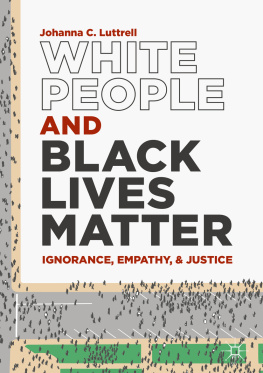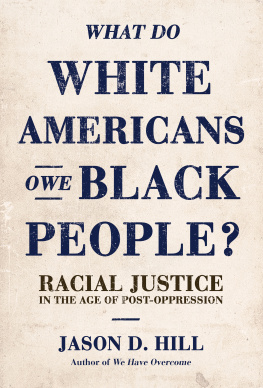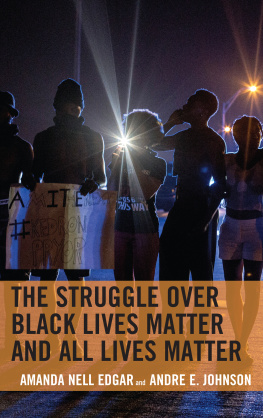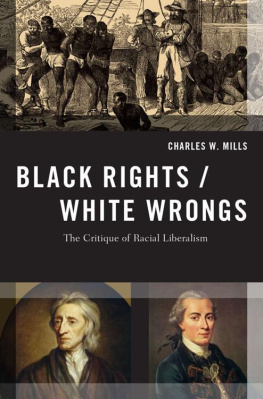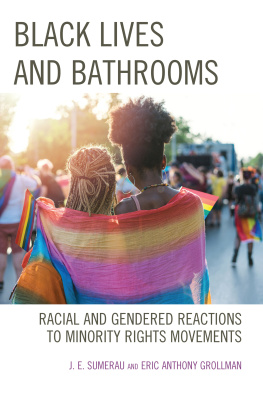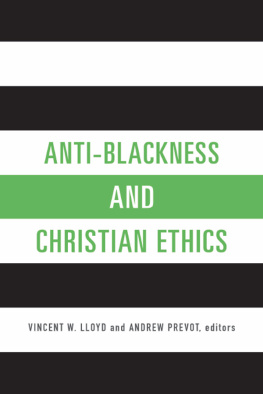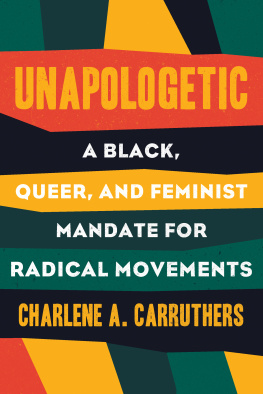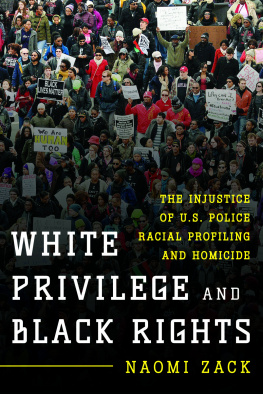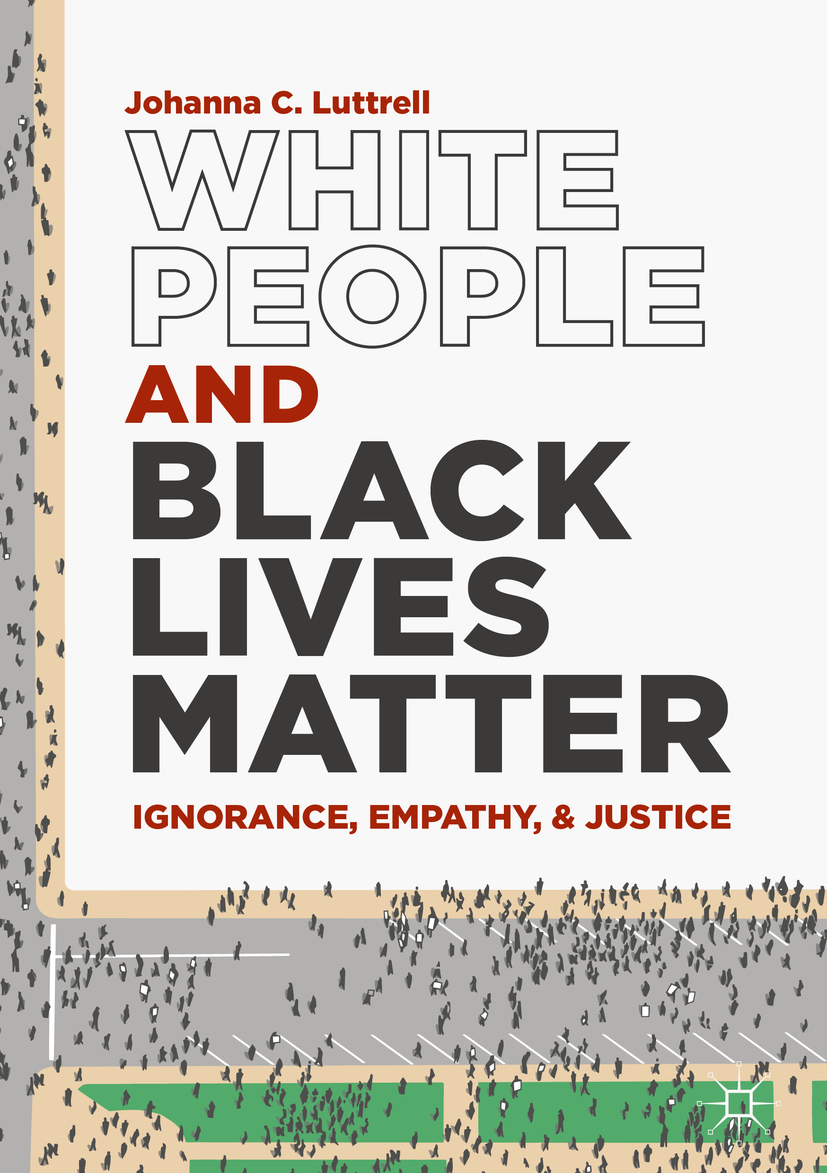Johanna C. Luttrell
White People and Black Lives Matter Ignorance, Empathy, and Justice
Johanna C. Luttrell
University of Houston, Houston, TX, USA
ISBN 978-3-030-22488-2 e-ISBN 978-3-030-22489-9
https://doi.org/10.1007/978-3-030-22489-9
The Editor(s) (if applicable) and The Author(s) 2019
This work is subject to copyright. All rights are solely and exclusively licensed by the Publisher, whether the whole or part of the material is concerned, specifically the rights of translation, reprinting, reuse of illustrations, recitation, broadcasting, reproduction on microfilms or in any other physical way, and transmission or information storage and retrieval, electronic adaptation, computer software, or by similar or dissimilar methodology now known or hereafter developed.
The use of general descriptive names, registered names, trademarks, service marks, etc. in this publication does not imply, even in the absence of a specific statement, that such names are exempt from the relevant protective laws and regulations and therefore free for general use.
The publisher, the authors and the editors are safe to assume that the advice and information in this book are believed to be true and accurate at the date of publication. Neither the publisher nor the authors or the editors give a warranty, express or implied, with respect to the material contained herein or for any errors or omissions that may have been made. The publisher remains neutral with regard to jurisdictional claims in published maps and institutional affiliations.
Cover illustration: roberuto / Getty Images
Cover design: Tom Howey
This Palgrave Macmillan imprint is published by the registered company Springer Nature Switzerland AG
The registered company address is: Gewerbestrasse 11, 6330 Cham, Switzerland
Preface
This book interrogates white responses to black-led movements for racial justice. Such responses are sites of clarity regarding white identity , because whiteness shows itself not only in white peoples self-regarding feelings but more so in dialogic responses to public, democratic social movements and discourse. Yet, my purpose here is not to define whiteness for its own sake but to clear the weeds of white peoples obstacles to respecting black-led social movements like Black Lives Matter (BLM). I probe reactions which often prevent white people from, according to black activists, the full range of human emotion and expression, including joy , anger , mourning , and political action .
My ultimate objective is not to indicate the ways in which white people might be racist and so deserve moral condemnation. Even though a white publics responses to black-led social movements can indeed be racist, such an approach that merely dwells upon the state of white peoples souls is unhelpful to the aims of the social movements in the first place. Instead, the aim is constructive: a philosophical self-reflection on the ways in which white reactions to BLM stand in the way of the movements important work. The hope is that coming to terms with our own reactions is a step toward cultivating better ones, responses that acknowledge human dignity , and the richness of varied forms of human expression. As such, the books aim is not to interpret BLM . That work is being done by scholars and activists whose positionality and commitment allow them insight which, as a white author, I do not and need not, possess.
Again, this work is an attempt to understand whiteness communally and individually, as seen phenomenologically in white responses to black-led social movements . It promotes white self-reflection for the purposes of political solidarity . That said, qua capacity in my own raced self, I have been trained over a lifetime not to see whiteness , its origins, effects, or agents. James Baldwin writes that white people in the United States are, in effect, still trapped in a history which they do not understand; and until they understand it, they cannot be released from it.
Yet knowledge and ignorance are not simple. The ways in which I do and do not know whiteness are complex tracings of conscious and unconscious play of ignorance and awareness. It is possible that this kind of knowledge is akin to the way Plato speaks about learning, as anamnesis a remembering of what has been forgotten. Whiteness could in this sense be a process of un-learning, a mandated forgetting . Power and interests promote forgetting and make certain processes; in this case, the construction of whiteness , invisible to certain people, and hyper-visible to others. In a society structured by white supremacy , white peoples power depends on forgetting and people of colors survival depends upon remembering . Writing, then, can be a form of learning, in the Platonic sense of excavation. That is, the act of writing itself can be a way of trying to understand, remembering what one is encouraged to forget, because it is an active participation in knowledges construction. Regarding discussions on racial justice and social movements , I have felt the need to do more than just be a consumer of other peoples observations; I have found myself needing to participate in knowledges construction. I wrote this book because I think it is important that white people in the United States respect BLM , and I address some of their objections philosophically. I did not write this book because, either in my capacity as a philosopher or a white person, I am more an expert on the topic than people of color whose survival depends, in many ways, on their perceptivity to whiteness .
In the process of writing, I would like to thank the interdisciplinary faculty reading group at University of Houston for their early, very helpful comments, especially Rachel Afi Quinn and Eesha Pandit ; the Political Theory reading group at the University of Houston ; the participants of the 2017 California Roundtable on the Philosophy of Race group for their thorough feedback; Ronald Sundstrom for his early comments on a chapters working draft; Naomi Zack for her feedback and encouragement; my colleagues at the Hobby School of Public Affairs for the academic freedom and initiative they inspire. Thanks to Thibaud, who gave me confidence that this book was possible and who allowed me to finish the book while he took care of our new baby. This book is dedicated to the activists in Houston , Texas, who taught me so much about social commitment, radical love , and the revolutionary South. May the book be in some small way a help, or at least not a hindrance, to your work. I am grateful for my readers, support system, and activist community; any distortions or misrepresentations are entirely my own.
Johanna C. Luttrell
Houston, TX
Contents
Footnotes
In philosophy of race, see, for instance, Christopher Lebron , The Making of Black Lives Matter: A Brief History of an Idea (Oxford: Oxford UP, 2017); Naomi Zack, White Privilege and Black Rights: The Injustice of US Police Racial Profiling and Homicide (NY: Rowman and Littlefield, 2015). In African-American studies, see, for instance, Keeanga-Yahmatta Taylor , From #BlackLivesMatter to Black Liberation (Chicago: Haymarket, 2016) In History, Barbara Ramsey , Making All Black Lives Matter: Reimagining Freedom in the Twenty-First Century

